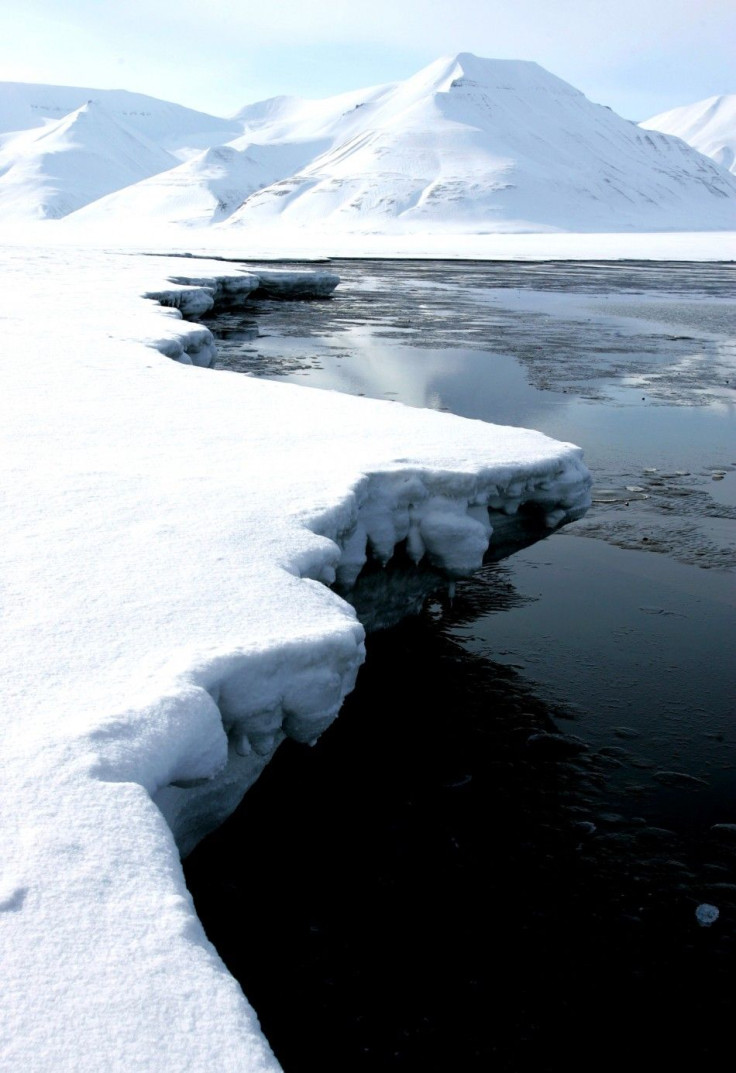We Own It: Russian Bishop ‘Consecrates’ Arctic Ocean

Russia has taken a bizarre step to declare its “ownership” of the Arctic Ocean region by having a Russian Orthodox bishop “consecrate” the North Pole on behalf of the church.
According to the Daily Telegraph, a bishop named Iakov of the northern Naryan-Mar (which lies north of the Arctic Circle) placed a "holy memorial capsule" into the icy sea while aboard the Rossiya, a nuclear-powered icebreaker during a polar expedition arranged by Russia’s Arctic and Antarctic Research Institute.
The capsule featured an inscription that read: "With the blessing of Patriarch Kirill of Moscow and All Russia, the consecration of the North Pole marks 1,150 years of Russian Statehood."
Moscow is keen to assert its domination of the Arctic, given the huge reserves of untapped oil and gas believed to reside in the region, and has also accelerated its remilitarization there. Reportedly, the Russian military’s MiG-31 supersonic interceptor aircraft will be deployed in the Arctic region by the end of this year.
According to Bishop Iakov, the consecration is important to both the Orthodox Church and the Russian people for it “symbolizes the efforts of the state to recover the positions of Russia and confirmation of its achievements in the Arctic.”
Patriarch Kirill, the leader of the Russian Orthodox Church and a close ally of President Vladimir Putin, has himself declared that developing oil and gas reserves in the Arctic is a “strategic priority" for Russia.
Earlier this summer, the Institute of Expert Assessments, a conservative Moscow-based think-tank, asserted that the Arctic Ocean should be renamed the Russian Ocean in order to emphasize Russian supremacy in the region and its rights to exploit the rich mineral resources there.
“It's traditional to name seas and oceans after the countries that have the most influence over them,” Nikolay Pavlyuk, head of the think tank, told Russia Today.
“A significant part of the ocean bed is a sort of natural continuation of the bedrock which starts in Russia.”
Moscow has long insisted that it has the right to claim Arctic territory beyond the exclusive economic zone (which currently extends 200 miles from its northern coast according to a U.N. convention on Law of the Sea).
Five years ago, Russian explorers dove below the North Pole and planted the national flag on the seabed to express their claim to the wealth of the Arctic.
At that time, an MP in the parliament named Artur Chilingarov, who accompanied that expedition, told the Itar-Tass news agency: "It was so lovely down there. If a hundred or a thousand years from now someone goes down to where we were, they will see the Russian flag.”
Boris Gryzlov, who headed the State Duma lower chamber of parliament, also praised the symbolic flag ceremony.
"This is fully in line with Russia's strategic interests," he said. "I am proud our country remains the leader in conquering the Arctic. I am proud United Russia [Party] members took part in this unprecedented mission."
Canada, one of the countries that also lays claim to reserves in the Arctic, along with Norway, the U.S. and Denmark, blasted the Russians.
"This isn't the 15th century. You can't go around the world and just plant flags and say 'We're claiming this territory,'" Canadian Foreign Minister Peter MacKay told CTV television.
The U.S. also criticized Moscow for its presumptions.
"I'm not sure of whether they've put a metal flag, a rubber flag or a bed sheet on the ocean floor. Either way, it doesn't have any legal standing or effect on this claim," State Department deputy spokesman Tom Casey told reporters.
© Copyright IBTimes 2024. All rights reserved.











